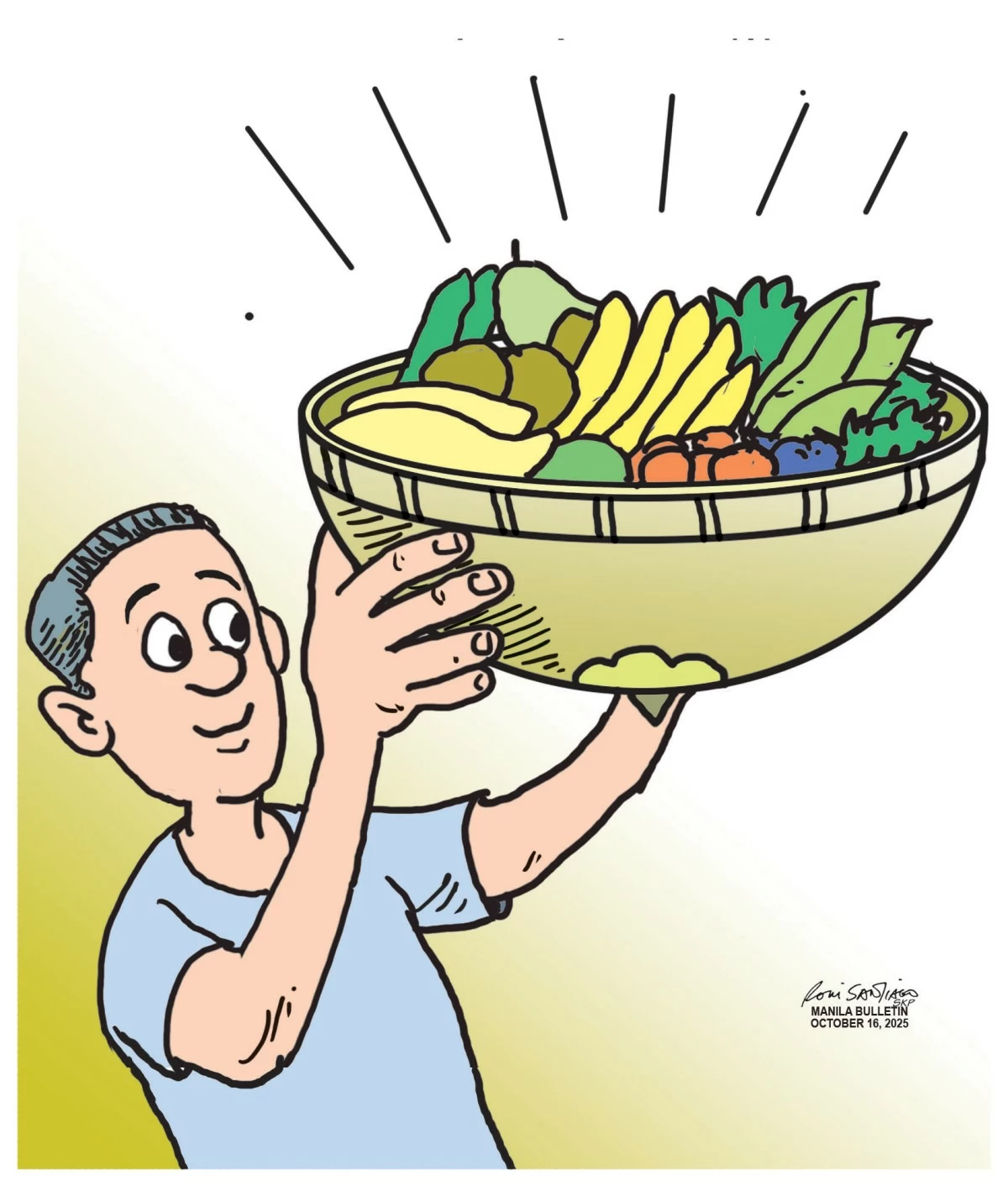
Food is a topmost national concern
We join the global call for collective action to build a food-secure and sustainable future as the world marks World Food Day on Oct. 16. This year’s theme, “Hand in hand for better foods and a better future,” carries a message that resonates deeply with the Philippines — a country blessed with fertile land, rich seas, and resilient farmers, yet still confronting hunger, malnutrition, and the impacts of climate change. The Food and Agriculture Organization of the United Nations (FAO), the lead agency in the commemoration, reminds us that agrifood systems are under mounting pressure from extreme weather, conflicts, economic shocks, and inequality. Globally, an estimated 673 million people still suffer from hunger, even as food waste and obesity rise elsewhere. In the Philippines, a Social Weather Stations (SWS) survey conducted from June 25 to 29, published in August, found that 16.1 percent of Filipino families experienced involuntary hunger, defined as going hungry with nothing to eat, at least once in the past three months. In our country, food security has long been a national priority. The Department of Agriculture (DA) recently launched its local observance of World Food Day with the same rallying call for unity and shared responsibility. The theme urges Filipinos to “bridge gaps, combine strengths, and collectively build a brighter and food-secure future,” the DA said. The DA continues to push climate-resilient farming, promote agricultural modernization, and strengthen farmers’ cooperatives and associations. Programs such as the National Rice Program, Kadiwa ng Pangulo, and urban and community gardening efforts aim to improve access to safe, affordable, and nutritious food. The agency is also expanding partnerships with the World Food Program (WFP) and FAO to boost farmer productivity and link local producers with institutional markets. Yet challenges persist. Food prices remain volatile, small farmers struggle with access to credit and technology, and the country remains vulnerable to climate disruptions that threaten crops, fisheries, and supply chains. As FAO Representative Lionel Dabbadie stressed, transforming food systems “is no longer a choice but a necessity.” It is about protecting dignity, culture, and peace through food — recognizing that “food is hope.” But government action alone is not enough. Food security is a shared responsibility that calls for participation from all — the private sector, communities, and individuals. Businesses can invest in sustainable supply chains, reduce food waste, and source locally to support Filipino farmers. Food manufacturers can develop healthier, climate-smart products, while retailers can champion fair trade and transparency in sourcing. Every Filipino, too, can make a difference. Simple but powerful actions include supporting farmers by choosing to buy local produce, reducing food waste at home, and adopting sustainable eating habits. Communities can organize food sharing initiatives, plant edible gardens, and volunteer with organizations that fight hunger. In schools, nutrition education and awareness campaigns can instill in the young the value of food — not just as sustenance but as a symbol of shared responsibility and compassion. The private sector’s innovation and the citizen’s everyday choices are both essential to making the nation’s agrifood systems resilient. As FAO Director-General Qu Dongyu reminds us, “The actions we take today will directly impact the future. We must produce more with less.” That future will be brighter if we act together — hand in hand — for better foods and a better life for every Filipino. All of us — government, private sector, and citizens alike — should work hand in hand to ensure that no Filipino is left hungry and that food remains a source of pride, dignity, and hope for generations to come.